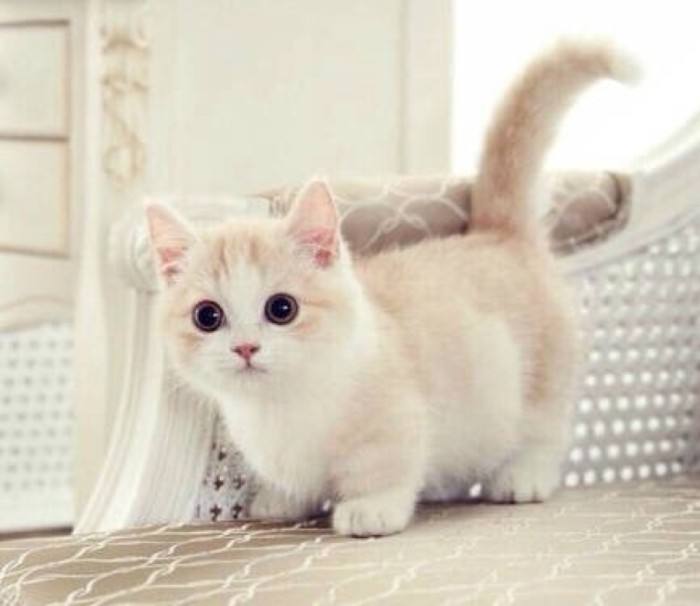Dialogue 1
Mark: Jingjing, check out what I got at the supermarket near your office.
馬克: 京晶,看看我在你辦公室附近那間超市買到了什么。
Jingjing: Pistachios? Those are my favorite nuts. That big jar must have cost a lot.
京晶: 開心果么? 那可是我最喜歡的堅果。這一大罐子一定花了不少錢吧。
Mark: They had a buy-one-get-one-free special.
馬克: 他們正好有買一送一的特惠活動。
Jingjing: You lucky dog! I go to that supermarket a few times a week and have never seen nuts on sale.
京晶: 你真是只幸運的狗!(意思是你真幸運!)我每周都會去那家超市幾次,但從來沒見過堅果打折。
Mark: Are you trying to insult me?
馬克: (你怎么說我是狗)你想侮辱我嗎?
Jingjing: Huh? Haven't you ever heard that idiom? A lucky dog is someone who doesn't work very hard but has good things happen to them.
京晶: 咦? 你沒聽過那個俚語嗎? “幸運的狗”是指那些不需要做出什么努力,就會有好事發生在他們身上的人。
Mark: Oh, so you're just saying I'm lazy. I see.
馬克: 哦,所以你就是說我懶惰咯。我明白了。
Jingjing: Take it easy, Mark. Hey, come to think of it, most idioms in English about dogs have to do with being lazy yet fortunate.
京晶: 放輕松,馬克。嘿,仔細一想,英語中大多數關于狗的俚語都與懶惰但幸運有關。
Mark: Yeah, like “it's a dog's life.”
馬克: 對,就比如“這過的簡直是狗的生活”。
Jingjing: Exactly. You might say, it's a dog's life for foreigners who teach English in China.
京晶: 沒錯。你可以說,在中國教英語的外國人“簡直過的是狗的生活。”
Mark: Hmm. I'll admit we don't have to work especially hard, and still have everything we need. Wait a second, what about “working like a dog”?
馬克: 嗯…我承認我們確實不必特別辛苦地工作,就能獲得我們所需要的一切。等一下,那“像狗一樣地工作”怎么解釋呢?
Jingjing: Could you use it in a sentence?
京晶: 你能用它造個句嗎?
Mark: Sure. “I'm so tired this afternoon, because I was working like a dog all morning.”
馬克: 當然。我今天一整個下午都很疲憊,因為我上午一直都在“像只狗一樣地拼命工作”。
Jingjing: Yeah, I guess that means working very hard. Hey, there was one I wasn't sure about: “Love me, love my dog.”
京晶: 對哦,我想這里的含義是指要非常努力地工作。嘿,有一種說法我不是很確定:“愛我,就要愛我的狗。”
Mark: That's a saying, which means if you expect someone to love you, they should love everything about you.
馬克: 這種說法也是個諺語,意思是如果你期待某人愛你,他們應該愛你的一切。(相當于漢語的“愛屋及烏”。)
Jingjing: Why does a dog get mentioned in that saying?
京晶: 那為什么要提到狗呢?
Mark: I think it's because some dogs smell bad or behave badly. So, if you love a person, you should accept that about them—even their pets.
馬克: 我想這是因為有些狗聞起來很臭,或者行為習慣不好。所以,如果你愛一個人,就你應該接受他們的一切,包括他們的寵物。
“
New words : 習語短語
lucky dog 幸運兒
a person who doesn't try very hard but is still fortunate
idiom 俚語
a phrase that couldn't be understood from the dictionary meanings of the words, and is rather tricky to use
it's a dog's life 不用特別辛苦工作,也能過得有模有樣
not having to work very hard, but still having everything you need
working like a dog 特別努力工作,尤其體力工作
working very hard, doing work that is tough physically but doesn't make you think much
Love me, love my dog. 愛屋及烏
Love everything about me, accept me totally.
saying
諺語,格言
a certain sentence that expresses wisdom or an attitude (i.e. “Don't put all your eggs in one basket.”)
Dialogue 2
Jingjing: We talked about dogs. What about cats?
京晶: 我們談到了很多關于狗的俚語。那貓的呢?
Mark: A lot of those are negative. People tend to think of cats as bad luck, or as selfish.
馬克: 很多關于貓的俚語都是負面的。人們傾向于認為貓代表壞運氣,或自私。
Jingjing: I wish more people would understand cats.
京晶: 我真希望更多的人能正確地了解貓。
Mark: Me too. Nevertheless, when you say someone is being catty, it means they sound like they are being polite, but they are really insulting you and being mean.
馬克: 我也是。盡管如此,當說到某人像貓(一樣狡猾)的時候,通常是指他雖然表面上聽起來很有禮貌,但實際卻是在刻薄地侮辱你。
Jingjing: That reminds me of another idiom I'm not sure I understand. “Let the cat out of the bag”—I know it's about telling a secret; but why a cat and why a bag?
京晶: 這讓我想起了另一個我不太明白的俚語:“把貓從袋子里放出來”——我知道它的意思是泄露、揭開秘密; 但是這跟貓和袋子有什么關系呢?
Mark: I read somewhere that it was about merchants at a market. Pigs were usually sold in bags. And, when one guy accidentally opened a bag before buying it, there was a cat.
馬克: 我在哪兒讀到過,這種說法緣起于市場上的商販。通常在市場上裝在袋子里出售的是豬,但當一個顧客在付款之前不小心打開一個袋子時,卻發現在里面的是一只貓。
Jingjing: Oh, so it's about a disappointing surprise.
京晶: 哦,所以這句俚語可以指泄露了令人失望的消息。
Mark: Yeah, if someone told you what your birthday present was going to be, and the gift was something like a cheaper mobile phone than the one you have now, you might say they let the cat out of the bag.
馬克: 對,比如有人告訴你,他要送你的生日禮物是一部手機,但是比你現在用的手機更廉價的那種,你就可以說對方“把貓從袋子里放了出來”。
Jingjing: Hmm, I know sometimes guys are referred to as cats.
京晶: 嗯,我還知道有時候可以把男人引用稱為貓。
Mark: Yeah, it's a slang term that means “guy”, as in, “he's a cool cat”.
馬克: 對,有一個俚語就是把一個男人比喻做“一只很酷的貓”。
Jingjing: That doesn't sound very negative.
京晶: 這種說法聽起來并不負面啊。
Mark: That's right. It'd be about a guy you don't know very well; but you think he's sly and able to handle himself in most situations.
馬克: 沒錯。它是形容一個人你不太了解,但你感覺他很圓猾,無論什么情況都能應付自如。
Jingjing: Ok. One more, what about the Cheshire cat?
京晶: 這樣啊,好吧。還有一個俚語,“柴郡的貓”是什么意思?
Mark: Oh, that's a reference to Alice in Wonderland. If someone has a big smile, because they're confident about something, but you don't know what it is, you could say they're smiling like the Cheshire cat.
馬克: 哦,那是來自《愛麗絲夢游仙境》的一個典故。如果某人咧嘴笑得很開心,因為他對某事很自信,但是你并不知道背后的緣故是什么,你就可以說他笑得像“柴郡的貓”。
Jingjing: That sounds good. I guess cats aren't getting such a bad rap after all.
京晶: 聽起來不錯。這樣一說,貓的名聲似乎也沒那么壞嘛。
Mark: Yeah, English idioms are kinda tricky.
馬克: 是啊,英語的俚語挺有些復雜難懂的。
New words : 習語短語
(being) catty 說話表面客氣,實則惡毒的
speaking politely but insulting someone in a mean way
let the cat out of the bag 走漏風聲,泄露秘密
make a secret known to others, typically if it turns out to be disappointing
slang 俗語
a word that has a meaning different from the dictionary with certain groups of people
reference 提及,引用,參照
the name of a popular movie or book character, used to describe a person you know (among other things)
a bad rap 壞名聲
a bad reputation, a way someone or something is often described badly
vt. 侮辱,凌辱,辱罵
n. 侮辱,辱罵











